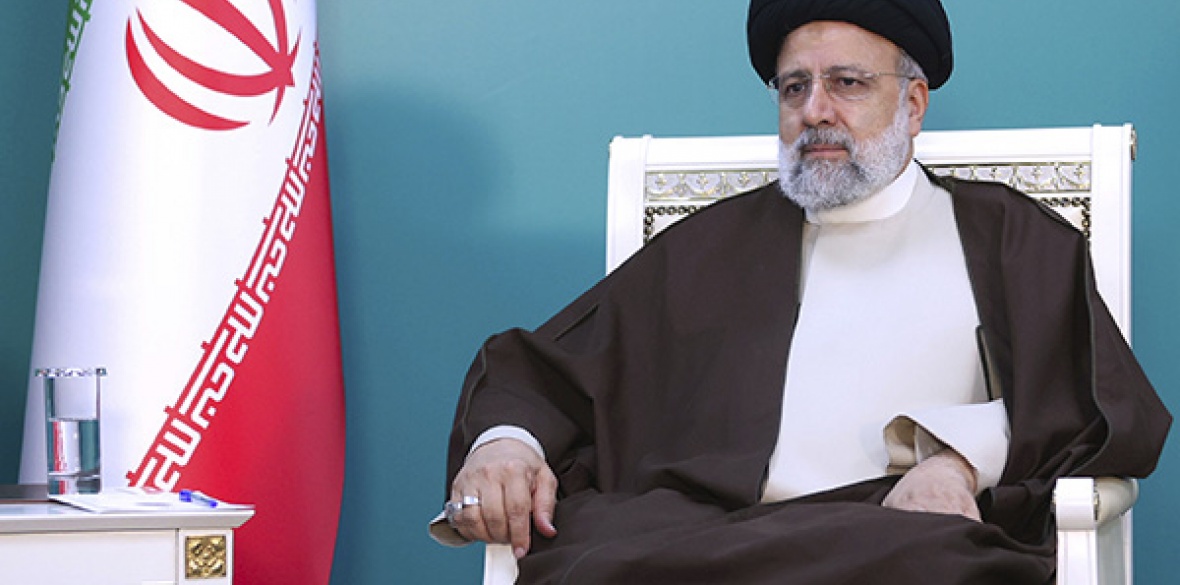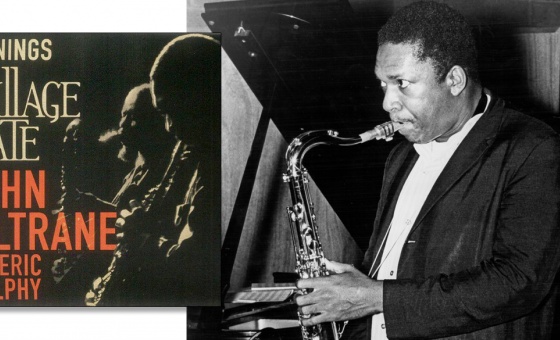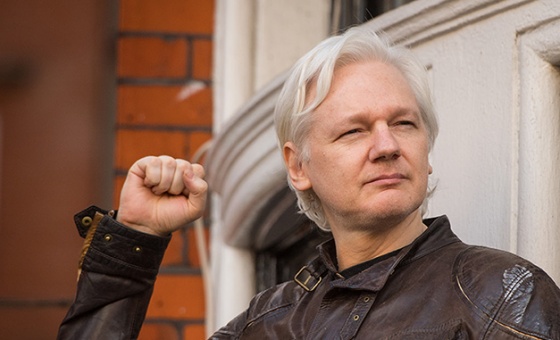This is the last article you can read this month
You can read more article this month
You can read more articles this month
Sorry your limit is up for this month
Reset on:
Please help support the Morning Star by subscribing here
AFTER hours of silence and extensive deployment of police forces in major cities of the country, the Islamic Republic’s media announced that President Ebrahim Raisi, Foreign Minister Hossein Amir Abdollahian, Mohammad Ali Al-Hashem, the Friday Prayer Imam of Tabriz, Malik Rahmati, the governor of East Azerbaijan, Seyed Mehdi Mousavi, the head of Raisi’s security team, one of Raisi’s bodyguards, and the flight crew of the helicopter carrying them were killed in a crash on Sunday May 19, on their way back to Tabriz.
Raisi had travelled to the East Azerbaijan province of Iran for the opening of the Qiz Qalasi Dam on the Aras border river with the Republic of Azerbaijan. According to the latest reports, after the approval of Ali Khamenei, the First Vice President Mohammad Mokhber Dezfuli will assume the responsibilities of the presidency until the presidential election is held.
Mokhber Dezfuli will hold the position for about two months. According to the Iranian constitution, the Iranian presidential election will have to be held within 50 days.
Raisi was a criminal figure in the Islamic Republic of Iran who played a key role in the massacre of freedom fighters over the past four decades.
The publication of Hussein-Ali Montazeri’s [the former, deposed successor of Iranian leader Ayatollah Khomeini] remarks in August 2016 about his meeting on August 15 1988 with the “death commission” of the regime’s delegation to prisons, including Hossein Ali Nayeri, the sharia judge, Morteza Eshraghi, the prosecutor, Mostafa Pourmohammadi, then representative of the Ministry of Intelligence in Evin prison, and Raisi, the deputy prosecutor of the country, revealed the vile and ruthless nature of Raisi and the rulers of the Islamic Republic.
In that meeting, Montazeri said to the “death commission” present at the meeting, including Ebrahim Rasisi who was one of its members, “in my opinion, this is the biggest crime that has been committed in the Islamic Republic since the victory of the revolution and we will be condemned in history … And you will be mentioned in future among the criminals of history.”
During the 1988 massacre, thousands of political prisoners with varying beliefs and viewpoints from various political groups were sent to death squads at the behest of Khomeini and on the orders of criminals such as Raisi.
During this massacre, unprecedented in the modern history of Iran, the Tudeh Party suffered the loss of a number of the most prominent leaders of the anti-dictatorship movement, prominent writers and translators, activists and cadres of the labour movement, patriotic military officers, activists and prominent members of the student and women’s movement.
After presiding over the Islamic Republic’s criminal judicial power, Raisi was installed as president by the order of Khamenei and the intervention of the Revolutionary Guard and the security apparatus of the regime in June 2021, in a vulgar sham election in which even according to the regime’s sources more than 52 per cent of the eligible voters in the entire country (and 74 per cent in Tehran) did not participate and more than 4 million invalid ballots were cast.
During the presidency of Raisi, protests by working people intensified, widespread popular struggles against the Islamic Republic swept the country, including the “woman, life, freedom” uprising, and the bloody repression of peaceful popular protests intensified, accompanied by widespread executions of dissidents and freedom fighters.
It was a period when the economic crisis worsened, there was unprecedented inflation, tens of millions of Iranians plunged into poverty, unemployment soared, and the gap between the poor and the rich in society deepened and widened. The policies of the Islamic Republic of Iran and Raisi as the head of government of this regime have led to a much more dire situation in the lives of the people.
Like its predecessors, the Raisi government failed to make any changes in the country’s declining economy and improve the living and working conditions of the country’s working people, because this government too continued the same macroeconomic programmes based on the neoliberal model that were pursued for three decades.
The boycott of the sham elections of the Islamic Parliament and the Assembly of Experts on March 1 2024 was unprecedented. Even according to the official figures of the regime, more than 60 per cent of the people did not participate and millions of invalid votes were cast. In some cities, the number of invalid votes even exceeded the votes of the elected candidates. This was the latest test of the “popularity” rating of Khamenei and his appointed criminal president in the public opinion of the nation.
The death of Raisi the executioner, one of the main partners in crime of the theocratic regime of Iran, someone who was being groomed by some powerful circles within the Islamic Republic’s regime to succeed Khamenei, is a blow to the regime’s plans to control the extremely critical situation in the country, particularly in the context of the critical and dangerous situation in the region.
Khamenei’s remarks last night in a meeting with “a group of families of the IRGC members” saying that “the nation should not be worried and concerned, there will be no disruption in running the country,” indicate the concerns of the regime’s leaders.
The only regret of the people of Iran and the families of the survivors of the horrific crimes committed by the mercenaries of reaction and tyranny over the death of Raisi is that the opportunity for his historic trial in the not-too-distant future has been lost.
The Tudeh Party has pointed out in recent months that the deep and wide divide today between the majority of the nation and the ruling dictatorship cannot be mended.
A large part of society, particularly the working class and other layers of the working people, demand fundamental political and social changes and a transition from this authoritarian regime.
The Islamic Republic is rotting away and is facing difficult crises and decisions to make in order to survive, which of course will not necessarily guarantee its survival.
By strengthening the united struggle of all patriotic and freedom-loving forces of the country, the road to end the current dictatorship and to establish a national and democratic government can and must be opened.
For more information on the left and workers’ movement in Iran visit Tudehpartyiran.org.











